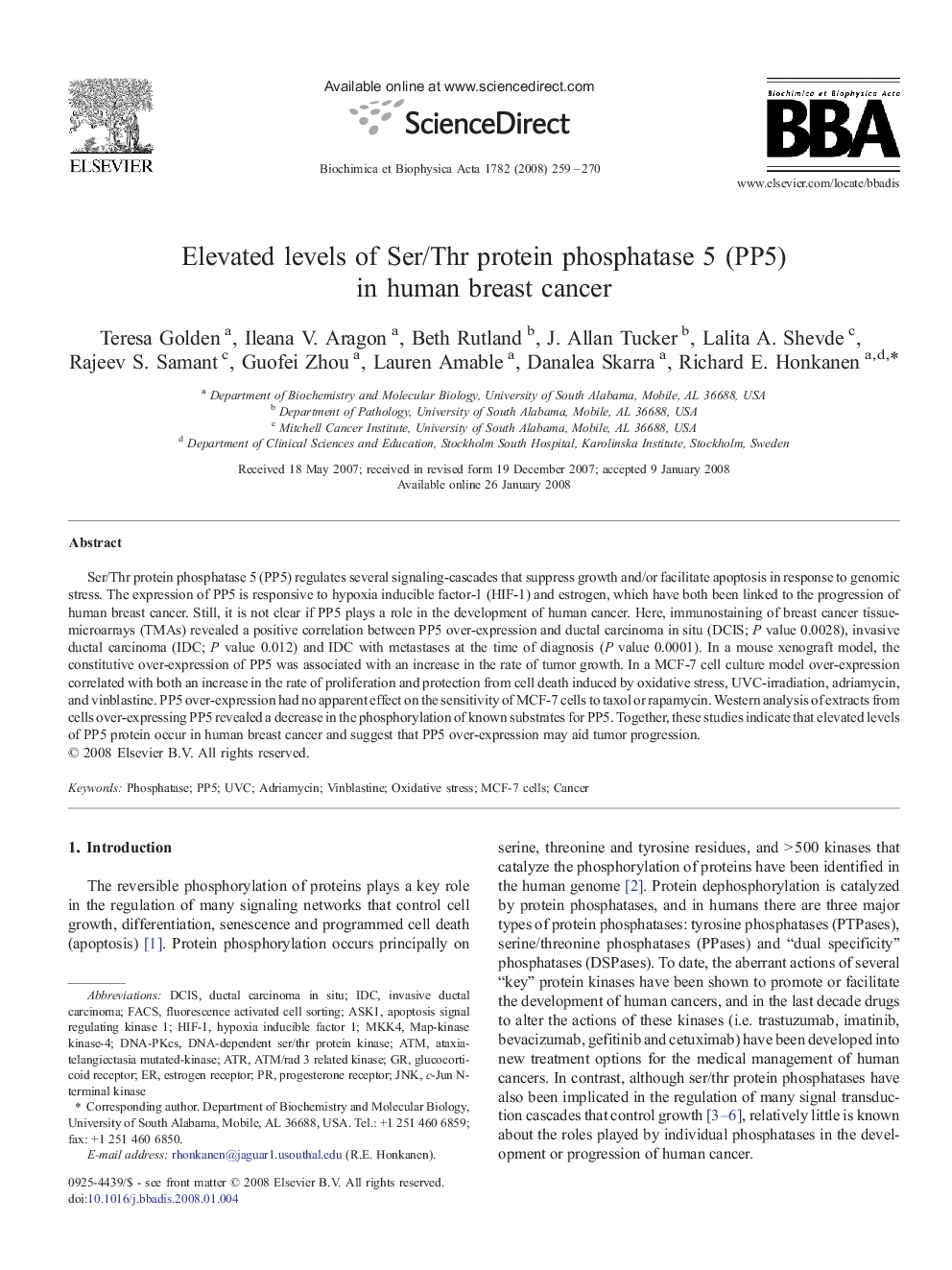| Article ID | Journal | Published Year | Pages | File Type |
|---|---|---|---|---|
| 1905714 | Biochimica et Biophysica Acta (BBA) - Molecular Basis of Disease | 2008 | 12 Pages |
Abstract
Ser/Thr protein phosphatase 5 (PP5) regulates several signaling-cascades that suppress growth and/or facilitate apoptosis in response to genomic stress. The expression of PP5 is responsive to hypoxia inducible factor-1 (HIF-1) and estrogen, which have both been linked to the progression of human breast cancer. Still, it is not clear if PP5 plays a role in the development of human cancer. Here, immunostaining of breast cancer tissue-microarrays (TMAs) revealed a positive correlation between PP5 over-expression and ductal carcinoma in situ (DCIS; P value 0.0028), invasive ductal carcinoma (IDC; P value 0.012) and IDC with metastases at the time of diagnosis (P value 0.0001). In a mouse xenograft model, the constitutive over-expression of PP5 was associated with an increase in the rate of tumor growth. In a MCF-7 cell culture model over-expression correlated with both an increase in the rate of proliferation and protection from cell death induced by oxidative stress, UVC-irradiation, adriamycin, and vinblastine. PP5 over-expression had no apparent effect on the sensitivity of MCF-7 cells to taxol or rapamycin. Western analysis of extracts from cells over-expressing PP5 revealed a decrease in the phosphorylation of known substrates for PP5. Together, these studies indicate that elevated levels of PP5 protein occur in human breast cancer and suggest that PP5 over-expression may aid tumor progression.
Keywords
PP5DNA-PKcsFACSMKK4JnkIDCATRUVCHIF-1DCISASK1c-Jun N-terminal kinaseAdriamycinOxidative stressATMCancerMCF-7 cellsapoptosis signal regulating kinase 1hypoxia inducible factor 1Phosphatasefluorescence activated cell sortingVinblastineDuctal carcinoma in situInvasive ductal carcinomaEstrogen receptorProgesterone receptorglucocorticoid receptor
Related Topics
Life Sciences
Biochemistry, Genetics and Molecular Biology
Ageing
Authors
Teresa Golden, Ileana V. Aragon, Beth Rutland, J. Allan Tucker, Lalita A. Shevde, Rajeev S. Samant, Guofei Zhou, Lauren Amable, Danalea Skarra, Richard E. Honkanen,
